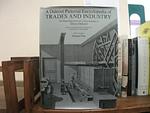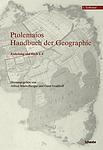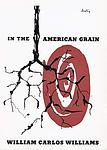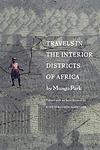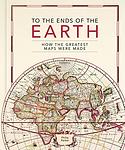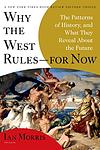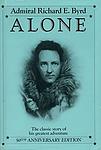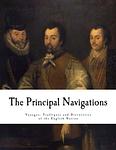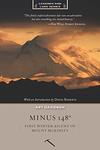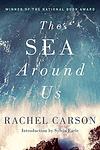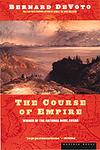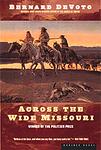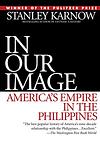The Greatest "Nonfiction, Geography" Books of All Time
Click to learn how this list is calculated.
This list represents a comprehensive and trusted collection of the greatest books. Developed through a specialized algorithm, it brings together 300 'best of' book lists to form a definitive guide to the world's most acclaimed books. For those interested in how these books are chosen, additional details can be found on the rankings page.
Genres
Geography is a category of books that focuses on the study of the earth's physical features, including its landforms, climate, and natural resources. It also explores the ways in which humans interact with and shape the environment, including topics such as population growth, urbanization, and globalization. Geography books may cover a wide range of subjects, from maps and cartography to cultural geography and environmental science. Overall, the category of Geography offers readers a comprehensive understanding of the world around them and the complex relationships between people and their surroundings.
Countries
Date Range
Reading Statistics
Click the button below to see how many of these books you've read!
Download
If you're interested in downloading this list as a CSV file for use in a spreadsheet application, you can easily do so by clicking the button below. Please note that to ensure a manageable file size and faster download, the CSV will include details for only the first 500 books.
Download-
1. Encyclopédie by Denis Diderot
This comprehensive work is a pioneering encyclopedia that aimed to present all the world's knowledge in a systematic and accessible way. It covers a wide range of topics including arts, sciences, crafts, professions, and technology. The book is also notable for its radical and enlightenment ideas, challenging traditional institutions and advocating for freedom of thought. It played a significant role in shaping the intellectual landscape of the 18th century and beyond.
-
2. Geography by Ptolemy
"Geography" is a seminal work in the field of geography and cartography, written by a renowned ancient Greek scholar. The book provides comprehensive details about the world as known during the Roman Empire. It contains a wealth of information about various countries, cities, landmarks, and geographical features, along with instructions on how to create maps. The author also introduces the concept of longitude and latitude, making this work a significant contribution to the field of geography.
-
3. In the American Grain by William Carlos Williams
"In the American Grain" is a collection of essays that explores the history and culture of America through the lives of significant figures, such as Christopher Columbus, Abraham Lincoln, and Edgar Allan Poe. The author offers a unique perspective on these figures and events, challenging traditional narratives and interpretations. The book provides a deep analysis of American identity, emphasizing its complexity and diversity.
-
4. Travels in the Interior Districts of Africa by Mungo Park
"Travels in the Interior Districts of Africa" is a detailed account of the author's exploration into the heart of Africa at the end of the 18th century. The narrative provides an in-depth look at the geography, flora, fauna, and local cultures of the region at the time. The author, a Scottish explorer, recounts his journey along the Niger River, his encounters with different African tribes, his experiences of being captured and enslaved, and his eventual escape. The book offers a unique perspective on African society and the European perception of Africa during this period.
-
5. The Tyranny Of Distance by Geoffrey Blainey
"The Tyranny of Distance" explores the impact of geographical isolation on Australia's history, economy, and society. Blainey delves into how the vastness of the continent has shaped the country's development, from the challenges faced by early settlers to the struggles of maintaining connections with the rest of the world. Through a comprehensive analysis, the book highlights the unique circumstances and opportunities that arise from Australia's geographical position, ultimately offering a thought-provoking perspective on the nation's past and future.
-
6. Atlas by Gerardus Mercator
"Atlas" is a seminal work in the field of cartography, offering a collection of maps and scholarly texts that revolutionized the way the world was perceived in the 16th century. The author, a renowned geographer and cartographer, introduces an innovative projection system that allowed for more accurate representation of the spherical world on a flat surface. This work is not only significant for its geographical and cartographical contributions but also for its influence on the way subsequent generations viewed and navigated the world.
-
7. Why the West Rules - For Now: The Patterns of History, and What They Reveal About the Future by Ian Morris
This book is a comprehensive exploration of the historical and cultural patterns that have led to Western dominance in the world. The author uses a broad range of evidence from archaeology, genetics, and linguistics to trace the development of East and West from prehistoric times to the present, arguing that physical geography, rather than culture, religion, or great men, is the primary driving force behind the rise of the West. The book also offers a forecast for the future, predicting a shift in global power from the West to the East.
-
8. Collapse by Jared Diamond
"Collapse" is an exploration of why certain societies throughout history have thrived while others have deteriorated and collapsed. The book delves into environmental problems, climate change, rapid population growth, and unwise political decisions as factors that contribute to the downfall of a civilization. The author uses examples from history such as the Mayans, the Vikings in Greenland, and modern examples like Rwanda and Haiti, to illustrate his points. It serves as both a historical analysis and a warning for modern societies to learn from the past in order to avoid a similar fate.
-
9. The Exploration of the Colorado River by John Wesley Powell
This book is a firsthand account of the first U.S. government-sponsored passage through the Grand Canyon. The author, a one-armed Civil War veteran, and his team of nine men risked their lives to accomplish this feat in 1869. They faced dangerous rapids, food shortages, and potential attacks from Native American tribes. The narrative provides detailed descriptions of the geography, geology, and Native American inhabitants of the region, offering invaluable insights into the uncharted territory of the American West.
-
10. Great River: The Rio Grande in North American History by Paul Horgan
This book provides an in-depth historical account of the Rio Grande, one of North America's significant rivers. The narrative is divided into four parts, each representing a different era in the river's history. The author meticulously explores the indigenous cultures that first inhabited its banks, the Spanish conquest, the Mexican-American War, and the modern development of the river. The book is not just about the river itself, but also about the people, cultures, and events that have shaped its course and the region surrounding it.
-
11. Gipsy Moth Circles the World by Francis Chichester
This book chronicles the author's solo sailing journey around the globe in his yacht, the Gipsy Moth IV. Battling harsh weather conditions, loneliness, and equipment failure, he successfully circumnavigates the world, starting and ending in England, and becoming the first person to do so by the clipper route, and the fastest circumnavigator, in nine months and one day overall. The book details his adventure and the challenges he faced, providing an intimate look at the world of sailing and exploration.
-
12. Alone by Richard Byrd
This book is a riveting account of the author's time spent alone in the Antarctic wilderness. He details his experiences of solitude, the harsh climate, and the physical and mental challenges he faced during his isolation. The narrative also provides a deep insight into his struggle for survival, his observations of the natural world, and his reflections on the human condition.
-
13. Journal of the Discovery of the Source of the Nile by John Hanning Speke
This book is a detailed account of an adventurous exploration to discover the source of the Nile River. The author, an English explorer, recounts his journey through Africa, detailing the various hardships, dangers, and cultural encounters experienced along the way. The narrative culminates in his discovery of Lake Victoria, which he claimed as the Nile's source. The book offers an intriguing look into 19th-century African exploration and the determination that led to one of the era's most significant geographical discoveries.
-
14. The Principal Navigations by Richard Hakluyt
"The Principal Navigations" is a comprehensive collection of English travel narratives from the 16th century, detailing a wide range of voyages and expeditions. The book includes accounts of journeys to the New World, Asia, and Africa, and features explorations by famous figures like Sir Francis Drake and Sir Walter Raleigh. The narratives provide a historical record of the era's discoveries, cultural encounters, and colonial endeavors, giving readers a unique insight into the period's maritime exploration and its impact on the world.
-
15. Cooper's Creek by Alan Moorehead
"Cooper's Creek" is a historical account of the 1860 Australian expedition led by Robert O'Hara Burke and William John Wills. The book details their ambitious journey to cross the Australian continent from south to north and back, a journey that resulted in the tragic deaths of both men. The author meticulously details the planning and execution of the expedition, the harsh realities of the Australian outback, and the complex personalities of the two men, while also providing a broader context of the era's fascination with exploration and scientific discovery.
-
16. Minus 148 by Art Davidson
"Minus 148" is a gripping account of a mountaineering team's harrowing winter ascent of Mount McKinley in Alaska. The team faces a brutal storm that traps them near the summit, forcing them to endure temperatures of -148 degrees Fahrenheit. Despite the dire conditions and tragic loss of life, the survivors demonstrate an incredible will to live, leading to one of the most remarkable rescues in mountaineering history. The book serves as a testament to the human spirit's resilience and the power of teamwork in the face of adversity.
-
17. Native American Folktales by Thomas A. Green
This book is a collection of traditional stories, myths, and legends from various Native American tribes. It explores the rich cultural heritage, beliefs, and customs of indigenous peoples through their oral storytelling tradition. The tales cover a wide range of themes including creation stories, tales of tricksters, moral lessons, and accounts of historical events. The book provides a unique insight into the spiritual and cultural life of Native Americans.
-
18. Earth: An Intimate History by Richard Fortey
This book provides a comprehensive understanding of the Earth's geological history. The author explores how the planet's diverse landscapes were formed over billions of years, examining various regions around the world from Hawaii to the Alps. The narrative intertwines scientific theories with engaging storytelling, making complex geological concepts accessible to a general audience. The book also emphasizes the impact of geological forces on human history and culture.
-
19. Running the Amazon by Joe Kane
This book is a thrilling account of an adventurous journey down the entire length of the Amazon River. The narrative documents the trials, tribulations, and triumphs of the first team to ever attempt such a feat. The journey, filled with dangerous rapids, hostile natives, and internal conflicts within the team, provides a fascinating exploration of not just the Amazon, but also of human nature under extreme circumstances.
-
20. The Sea Around Us by Rachel Carson
This book is a compelling exploration of the world's oceans, delving into their geological and biological processes. The author examines the history of the seas, from their formation millions of years ago to their present state. She discusses the sea's impact on climate and weather, its fascinating ecosystems, and the human exploration and exploitation of the oceans. The book is both a scientific study and a poetic tribute to the power and mystery of the sea.
-
21. The Course of Empire by Bernard A. DeVoto
"The Course of Empire" is a comprehensive historical narrative that explores the westward expansion of the United States from 1800 to 1848. The book delves into the politics, economics, and social dynamics that led to the exploration, settlement, and ultimately the transformation of the American West. It highlights the roles of key figures, the impact of the fur trade, the Gold Rush, and the Oregon Trail, and the indigenous cultures that were displaced during this period.
-
22. Exploration and Empire: The Explorer and the Scientist in the Winning of the American West by William H. Goetzmann
The book discusses the exploration and scientific discovery that took place during the expansion of the American West. It highlights the role of explorers and scientists in shaping the American empire, arguing that their endeavors were not just about territorial acquisition but also the pursuit of knowledge. The book delves into the lives and contributions of notable figures, providing a comprehensive view of the westward expansion era, its challenges, and its lasting impact on America.
-
23. Across the Wide Missouri by Bernard A. DeVoto
"Across the Wide Missouri" is a historical narrative that explores the American fur trade in the 1830s, focusing on the Rocky Mountain fur trade. The book provides a detailed account of the lives of trappers, traders, Native Americans, and the rich ecosystem they inhabited. The narrative is filled with adventure, danger, and the vast beauty of the American West, painting a vivid picture of a pivotal era in American history.
-
24. The Americans: The Democratic Experience by Daniel J. Boorstin
"The Americans: The Democratic Experience" delves into the social, political, and cultural evolution of America, focusing on the period from the end of the Civil War to the early 20th century. The book explores the impact of the democratic experience on various aspects of American life, including business, technology, and the arts. It also examines how the democratic experience shaped American identity and values, and influenced the country's growth and development.
-
25. In Our Image: America's Empire in the Philippines by Stanley Karnow
This book provides a comprehensive historical account of the relationship between the United States and the Philippines, from the time of Spanish colonial rule, through American occupation and its aftermath. It explores the motivations, actions and impacts of American imperialism in the Philippines, highlighting the cultural, political and economic influences that continue to shape the Philippines today. The book also delves into the complex interplay of power, resistance, and collaboration between the Americans and the Filipinos, providing a nuanced understanding of colonialism and its enduring effects.
Reading Statistics
Click the button below to see how many of these books you've read!
Download
If you're interested in downloading this list as a CSV file for use in a spreadsheet application, you can easily do so by clicking the button below. Please note that to ensure a manageable file size and faster download, the CSV will include details for only the first 500 books.
Download